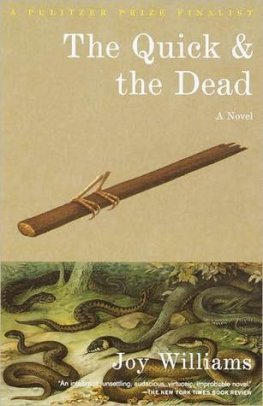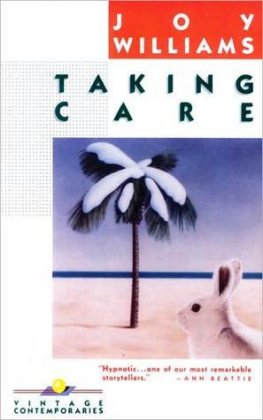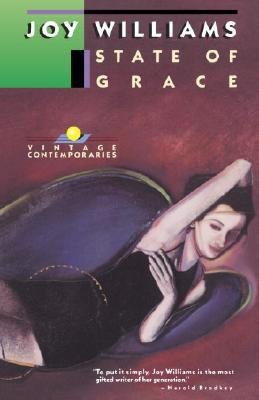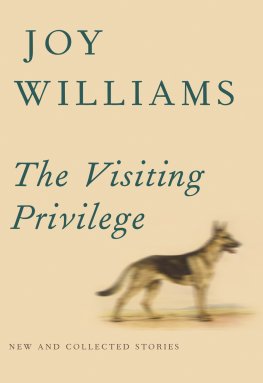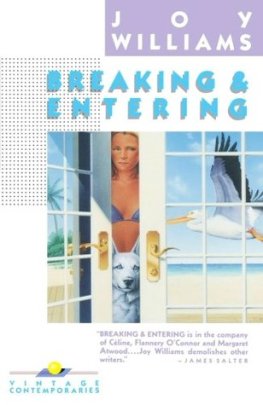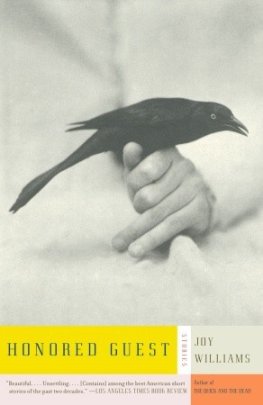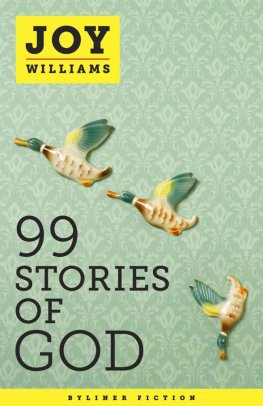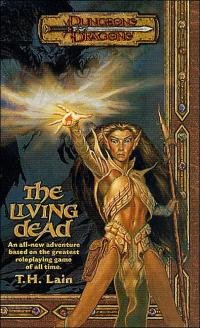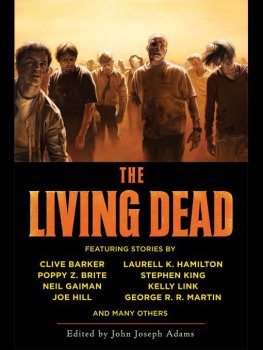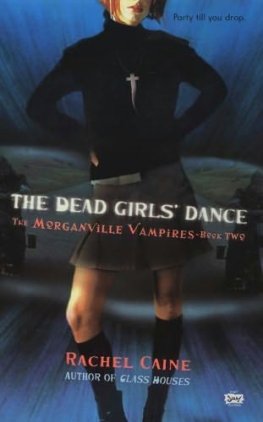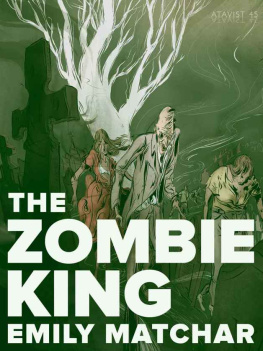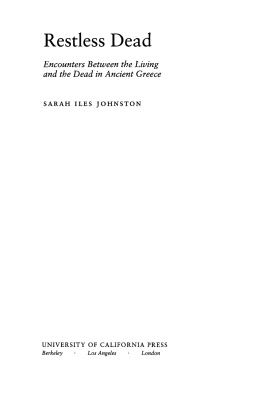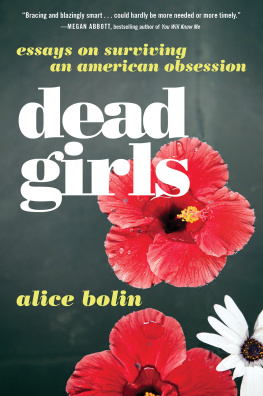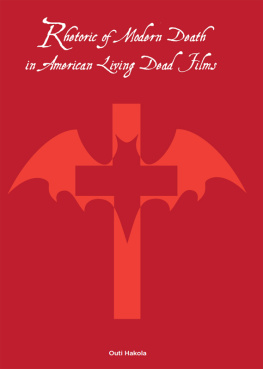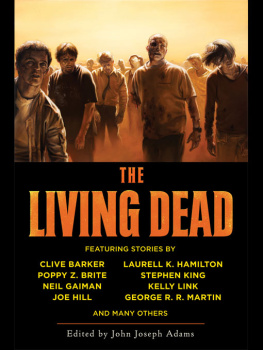Joy Williams
The Quick & the Dead
And whatever is not God is nothing,
and ought to be accounted as nothing.
THOMAS A. KEMPIS, The Imitation of Christ
Toward a place where
I could not find safety I went.
YAQUI DEER SONG

SO. YOU DONT BELIEVE IN A FUTURE LIFE.
Then do we have the place for you!
Youd be home now if you lived here, as the old signs promised.
But first, a few questions. To determine if you qualify.
What is the difference between being not yet born and having lived, being now dead?
Dont use reason without imagination here.
A hare is the determinative sign defining the concept of being. Say you catch an actual hare of the desert and place a mirror to his nose; you will observe that a moist breath mark will appear on the glass. The moisture comes from the hare, though there is not a drop of moisture going into him. Does this disprove the axiom Out of nothing, nothing comes?
Do you consider the gulf between the material and spiritual worlds only apparent?
Dont worry about catching the hare.
Do you believe that what has been is also now and that what is to be has already been?
The dead have certain obligations. Is one of them to remember us?
Do you find that offensive?
Do you find the dead ridiculous? How about the dead finding the living ridiculous?
Nothing we do is inevitable, but everything we do is irreversible. How do you propose to remember that in time?
Which would you prefer to have your life compared to, wind or dust?
Why?
Sorry.
The winter had not brought rain and there were no flowers, there would be no flowers. Still, the land in the spring of the year when Alice would turn sixteen could not be said to be suffering from drought. The desert knew no drought, really. Anything so habitual and prolonged was simply life a life invisible and anticipatory. What was germinative would only remain so that spring. What was possible was neither dead nor alive. Relief had been promised, of course.
For more than a month now, after school, Alice had been caring for six-year-old fraternal twins, Jimmy and Jacky. They lived with their mother, who was away all day, cutting hair. Their father was off in another state, building submarines. Hair, submarines, it was disgusting, Alice thought. She did not find the children at all interesting. They cried frequently, indulged themselves in boring, interminable narratives, were sentimental and cruel, and when frustrated would bite. They had a pet rabbit that Alice feared for. She made them stop giving it baths all the time and tried to interest them in giving themselves baths, although in this she was not successful. She assisted them with special projects for school. It was never too early for investigative reporting. They should not be dissuaded by their teachers discomfort; to discomfort teachers was ones duty. They were not too young to be informed about the evils of farm subsidies, monoculture, and overproduction. They should know, if only vaguely at first, about slaughterhouses. They shouldnt try to learn everything at once theyd probably get discouraged but they should know how things come into being, like ponies, say, and how theyre taken out of being and made into handbags and coats. They should get a petition going to stop the lighting of athletic fields, since too much light obliterated the night sky. Excessive light was bad. On the other hand, some things perceived as bad were good. Wasps, for instance. They should not destroy the wasp nest they discovered in their garage with poisons because wasp-nest building was fun to watch in a time-lapse photography sort of way. They should marvel at the wasps architectural abilities, their insect awareness of a supreme future structure they alone were capable of creating. Wasps were cool. The queens knew how to subsist in a state of cryogenic preservation in the wintertime. Jimmy and Jacky could get special credit for their understanding of wasps, agribusiness, slaughterhouses just to name a few possibilities. She was willing to make learning interesting for them.
But she didnt help much with homework. Mostly the three of them just hung out. Little kids didnt instinctively know how to hang out, Alice was surprised to learn. Sometimes theyd walk down to the Goodwill store and see the kind of stuff people had wanted once but didnt want anymore. She usually didnt buy anything because she didnt believe in consumption, but once she bought a nun in a snow dome. The nun was only fifty cents because the snow had turned brown and clotted and fell in revolting clumps when you turned the thing upside down. What was a nun doing in one of those snow domes anyway? Alice had never seen anything like it. The twins had never seen anything like it either. But Goodwill was only good for once or twice a week. The rest of the time theyd sit around in these tiny plastic chairs the boys had in their junk-filled room and Alice would discuss things with them, chiefly environmental concerns. Alice liked talking about animals and excess packaging. She opened their small eyes to the world of drift nets, wetland mitigation, predator control, and overpopulation. She urged them to discuss the overpopulation problem with their mother. Sometimes their attention wandered. They had a bunk bed in their room, and they both slept on the bottom bunk. When they were seven, theyd be permitted to sleep on the top bunk. They could hardly wait.
Their mother hadnt paid Alice yet, and near the end of the second month Alice asked for her money.
Yes, yes, sure, the mother said. I have to go to the bank tomorrow. How about Saturday?
She appeared Saturday morning at Alices house in her big sloppy station wagon. Alice and her granny and poppa were sitting on the patio drinking coffee and watching the birds at the feeder. Actually, only Alice was watching the birds, since her granny and poppa were talking avidly about compost. Alice couldnt talk about compost so early in the morning, but they could. Compost was as munificent as God to them, just as interesting as God certainly. They said that the reason healthy plants repel pests is that they have such intense vibrations in the molecules of their cells. The higher the state of health, the higher the vibrations. Because pests vibrations are on a much lower level, they receive a distinct shock when they come into contact with a healthy plant.
Why not? Alice thought.
Alice sauntered down to the station wagon, which was packed with luggage. You taking a trip? she asked.
Didnt Jimmy and Jacky tell you? Oh, thats right, I swore them to secrecy. Lets go out and have some breakfast. Ill buy you a donut.
The mother gave Alice the creeps. She wore large, shapeless dresses she called her jelly bags.
Ive had my breakfast, Alice said.
Id like to talk to you, the woman said. Breakfast really isnt necessary. Why dont we go out to the state park thats a nice ride.
Alice looked back at the patio, but her granny and poppa had gone inside. She shrugged and got into the car. Cars had never charmed her, and this one seemed particularly vile. They sped off to the park about fifteen miles away. The lovely, lovely mountains tumbled across the horizon.
The kids mother moved one big arm and groped around in the backseat. The car veered down the road, Alice staring stoically ahead, until she retrieved what she was after, a cocktail in a can. Want a pop? she said. Alice shook her head. Sure? the woman said. Its mostly fruit juices.
I want a scar, Alice thought. A scar that would send shivers up peoples spines but would not elicit pity. She didnt want that kind of scar.

